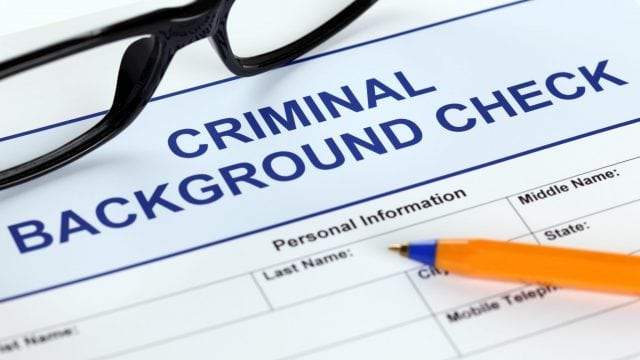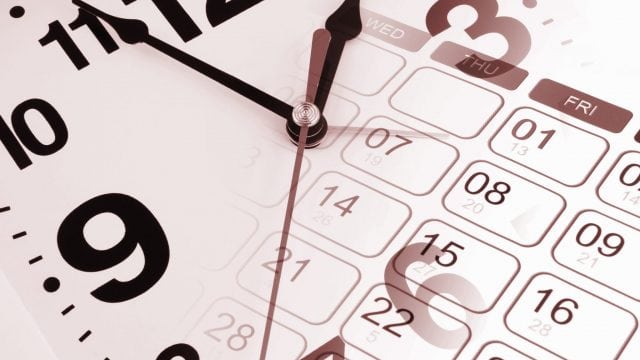 If you have a NJ disorderly persons offense on your background check, you might be wondering what this means in terms of obtaining employment, answering job application questions, and what, if anything, you can do to remove the disorderly persons conviction from your criminal record.
If you have a NJ disorderly persons offense on your background check, you might be wondering what this means in terms of obtaining employment, answering job application questions, and what, if anything, you can do to remove the disorderly persons conviction from your criminal record.
Nearly one third of all Americans are arrested before turning the age of 23. Moreover, many of those individuals end up with disorderly persons convictions on their records. While disorderly persons offenses might not look as bad on paper as felony convictions do, they can still pose significant obstacles and have serious impacts to those looking for employment. Moreover, in today’s job market, the odds can be stacked against anyone who has a criminal record – even for minor offenses such as disorderly persons convictions.
Thus, if you have been convicted of a disorderly persons offense, it is vital that you learn how to handle your conviction and that you develop an appropriate job search strategy to ensure that your past does not hurt your future career goals.
What Is a Disorderly Persons Offense?
In New Jersey, while felony convictions are referred to as “indictable offenses,” misdemeanor convictions are referred to as “disorderly persons offenses.” In comparison to felonies, disorderly persons offenses (or misdemeanors) are less serious criminal offenses.
Most disorderly persons offenses will be heard in a New Jersey municipal court. In fact, disorderly persons and petty disorderly persons offenses in New Jersey are the most common variety of non-motor vehicle related charges prosecuted in New Jersey municipal courts. Penalties for disorderly persons offenses in New Jersey can include incarceration for up to 6 months and/or a $1,000.00 fine.
Some of the most common disorderly persons offenses in New Jersey include simple assault, possession of less than 50 grams of marijuana, possession or use of drug paraphernalia, harassment, petty theft, disorderly conduct, obstruction, and public intoxication.
Will My Disorderly Persons Conviction Show Up on a Background Check?
While disorderly persons convictions carry fewer punishments than felonies, like felonies, they will stay on your criminal record for life, which means that misdemeanors should show up on background checks. That being said, whether or not your disorderly persons conviction will actually show up on a background check is entirely dependent on how thorough the background check is.
There are thousands of background check providers available to employers. Some of these services are more accurate than others. Moreover, some employers only request that the background checks look back a certain number of years. Thus, it is virtually impossible to know whether or not your disorderly persons conviction will actually be revealed during any given background check. As a general rule, however, the more comprehensive and accurate the background service provider is, the more likely your conviction will appear.
Do All Employers Run Background Checks?
Not all employers run background checks, but most do. Of course, whether or not your particular employer will run a background check depends on the job. In general, the larger the employer, the more likely they will be to run a background check on a potential employee.
All employers have the right to run a criminal background check on you, however, and, as discussed above, chances are your disorderly persons conviction will show up.
When an employer can run a background check on you, however, will be dependent on state law. Under New Jersey’s “ban the box” law, for example, an employer is prohibited from running a criminal background check or asking questions relating to your criminal history until after the first interview. After the first interview, however, anything is fair game.
Are There Certain Jobs That I Will Not Be Able to Obtain Due to my Disorderly Persons Conviction?
In general, employers are less concerned with disorderly persons convictions than they are with felony convictions. Whether or not an employer will hire someone with a disorderly persons convictions on their record is completely up to the employer, however.
In today’s competitive job market, Human Resource managers often look for any reason to disqualify a candidate. We often hear these individuals explain that, if they are forced to select between an individual with a clean background versus an individual with a disorderly persons conviction on their record, they will almost always choose the candidate with the clean background.
As discussed above, however, smaller employers may be less likely to run complete background checks. Moreover, younger managers are often more accepting of youthful indulgences. Thus, job candidates might want to consider adjusting their list of potential employers to more likely prospects. Job candidates can also research companies in their area that are known for hiring individuals with criminal records. While these jobs might not be ideal, they can certainly help you to rebuild your job history and, in turn, lead to better future opportunities.
Finally, if you are able to expunge your disorderly persons conviction, you should make sure to do so as soon as possible. All disorderly persons offenses in New Jersey can be expunged from your record. Once expunged, they will no longer show up on a background check and you will not be required to disclose the offense.
How Quickly Can I Expunge My Disorderly Persons Conviction in NJ?
The standard time period to expunge a disorderly persons conviction in New Jersey is five years. You can, however, apply for an early pathway expungement of your disorderly persons conviction after 3 years. Thus, disorderly persons convictions in New Jersey will remain on your record for at least 3 years from the date you completed your sentence (which includes payment of court fines and completion of probation). Please note, however, that in the case of payment of court fines, there are exceptions to this general rule.
It is important to note that you must actually petition the New Jersey courts for expungement and that these records are never automatically expunged.
Once My Disorderly Persons Conviction Is Expunged in New Jersey, Will I Have to Disclose It to Employers and/or Will Employers Be Able to See it?
Once your disorderly persons conviction is expunged, it will be as if the offense never occurred. Thus, you will be under no legal obligation to disclose your record and any potential employer running a criminal background check on you will not be able to see the record.
There are, however, three exceptions to this general rule. If you apply for a position within: (1) law enforcement; (2) the judiciary; or (3) corrections, you will still be under a legal obligation to disclose the record – even after expungement – and these agencies will be able to see your expunged record. For all other positions, however, the potential employer will not be able to see your expunged records and you will not be required to disclose them.
I Am Not Yet Eligible for Expungement. How Should I Answer Questions About My Criminal Record?
The most important thing to do when answering questions about your criminal record is to make sure you read the questions carefully and that you only answer the question being asked. Thus, for example, if the question asks whether you have ever been charged, arrested, or convicted for any felonies, you may not have to disclose your misdemeanor conviction in response to this question – depending on how it is worded.
If you must answer “yes” to a question regarding your criminal record, take the opportunity to explain any helpful circumstances surrounding the offense (for example, if you were young, include your age) and/or any subsequent achievements you have accomplished since the offense. Put a positive spin on your criminal past and discuss what you learned from the experience and how you have grown as a person since the offense occurred. If true, you may also want to point out that the offense occurred several years ago.
What Happens If I am Denied a Job Due to my Criminal Record?
Of course, an employer is not required to hire you simply because you were forthright about your disorderly persons offense in your application or job interview. Rather, employers typically worry that job candidates with criminal records pose a liability to the company. For example, if you were convicted of shoplifting, a potential employer may worry that you might steal from the company.
While it can be illegal for employers in most industries to refuse to hire individuals without any convictions on their records, these laws are seldom enforced. Moreover, employers are often able to circumvent the law by simply never calling back those individuals who had criminal records to inform them as to why they were not selected. Unfortunately, there is often little that can be done (aside from expunging your record) but to move on and continue looking for a position.
$895 NJ Expungement Lawyers
If you have questions about disorderly persons offense on background check, contact the experienced NJ expungement lawyers at Katherine O’Brien Law today.
We charge a flat fee of only $895 to represent you on your expungement. Moreover, we offer flexible payment plans and can start working on your expungement for as little as $350 down.
Call us know for a free consultation at 856-832-2482 or fill out out Expungement Interview Form for a free expungement analysis.







